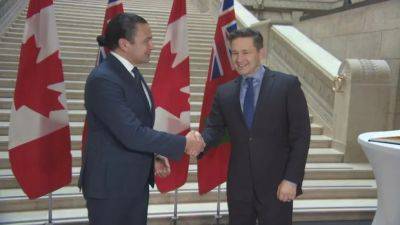Is the carbon tax suffering from a failure to communicate?
Attacks on the carbon tax are both easy and counterintuitive.
The federal price on carbon, implemented in 2019, is still relatively new. After a period of unusually high inflation, Canadians are newly sensitive to the price of goods and necessities. And the carbon tax, by design, increases each year (on April 1, in fact).
Meanwhile, the benefits that derive from putting a price on carbon, and the greater economic and environmental harm that might result from lacking such a policy, are not immediately tangible — although Canada's greenhouse gas emissions falling.
So when Conservative leader Pierre Poilievre encourages his supporters to chant «axe the tax» and «spike the hike,» he's aiming at an easy target.
But unlike most other taxes, and everything else that could be said to be contributing to the cost of goods, the carbon tax comes with a rebate. In fact — as its proponents like to point out — it's estimated that most households receive more from the rebate than they pay in added costs created by the tax.
Given that most people — particularly those with lower incomes — are expected to receive more from the rebate than they pay in additional costs, many households might actually end up worse off if the carbon tax is repealed.
For the sake of comparison, consider federal excise taxes on fuel, which long predate the carbon tax. Since 1995, the excise tax has added 10 cents to every litre of gas. The resulting revenue is not rebated directly to households (although some people with a mobility impairment can apply for a partial refund).
But no opposition leaders or premiers are clamouring right now for Prime Minister Justin Trudeau's government to repeal those excise taxes — perhaps because they generate $5 billion annually for





